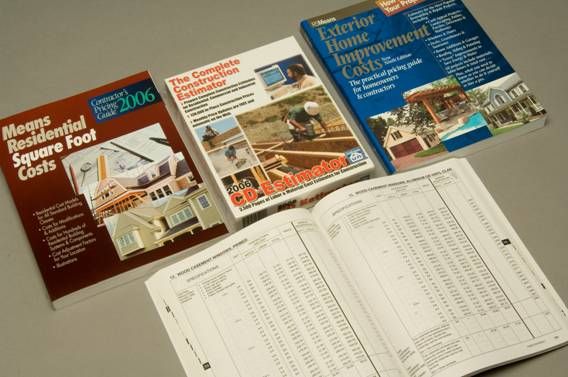
To price your work competitively, you have to know your costs. No estimating database provides this information as accurately as your own accounting records from similar jobs. If you do the same work over and over, you have no need for national cost books or estimating software to help you develop proposals. But if you perform a wide range of projects, including remodeling, home building, and light commercial work, you may not have a history of similar projects from which to draw cost information, and it’s useful to refer to estimating software as a guideline.
Some programs are actually quite accurate and useful, such as Xactamate, used by the insurance industry, and the HomeTech systems for remodelers. These programs tailor costs by ZIP code. They also require subscriptions, which are expensive. So we’ll start our series on estimating software by looking at programs provided for free.
RSMeans: In trying to get ballpark, light-commercial estimates off my desk, or for pro forma purposes, I have often turned to a free online service from RSMeans, one of the oldest and most highly regarded commercial construction cost databases available. The system is ZIP code sensitive, so it should provide you with relevant costs, although they tend to be on the high side. It uses prevailing wages, which are likely higher than yours. Nevertheless, when estimating projects, it’s best to aim a little high.
You must first create an account. It’s an easy process that requires only basic information, and then you get immediate access. There are fields for entering the title of your project, such as Joe’s Office; the basic project type, such as bowling alley, apartment building, or in this case, single-story office; square footage; and ZIP code.
Here’s the result:
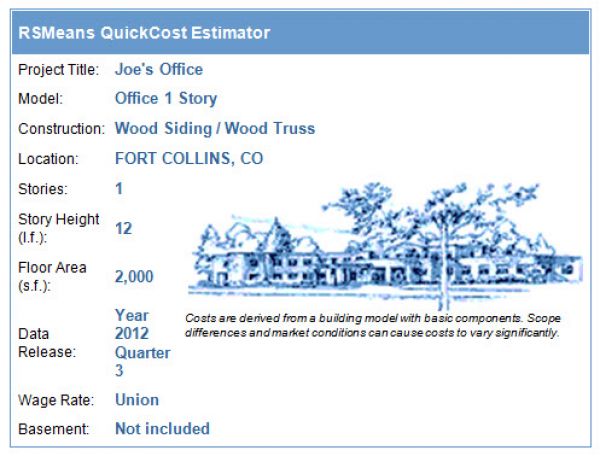 |
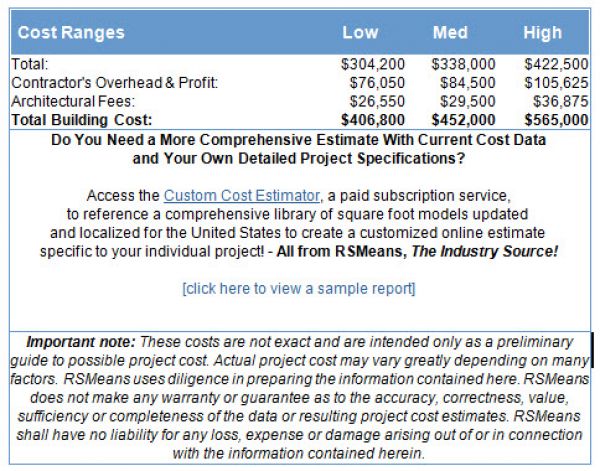 |
RSMeans does not provide free single-family estimates, but it does provide costs for small apartment buildings. The website also provides a free construction dictionary. I looked up ballpark, which was defined, “A rough estimate.” I looked up balustrade: “A complete railing system, including a top rail, balusters, and sometimes a bottom rail.”
Building-cost.net: I used the National Construction Estimator books back in the 1970s. Now, at building-cost.net, I can create a quick estimate for a house by including some basic information about the building envelope, how many corners the house has, and what its total square footage is (including the garage). Next, I select from a quality-of-construction checklist, essentially a set of general specifications. In the example below, I chose class 4, good quality, and a wood-frame structure. The site asks a series of specific questions on areas of finish, such attic and basement. I chose an unfinished basement and garage. The program then wants to know where you’re building the house, in town or in the suburbs. It asks a series of questions about mechanicals, which I answered in fairly standard fashion: forced-air heating and cooling, one fireplace, two baths. I chose my city and state, and then voila, a complete estimate appeared.
This is an estimate for a single-family residence built under competitive conditions in Longmont, Colo., in November 2013. The estimate includes a foundation as required for normal soil conditions; excavation for foundation and piers on a prepared building pad; floor, wall, and interior and exterior finishes; roof cover; interior partitions; doors and windows; trim; electric wiring and fixtures; rough and finish plumbing; built-in appliances; supervision; design fees; permits; utility hookups; and the contractor’s contingency, overhead, and profit. Highly decorative, starkly original, or exceptionally well-appointed residences will cost more.
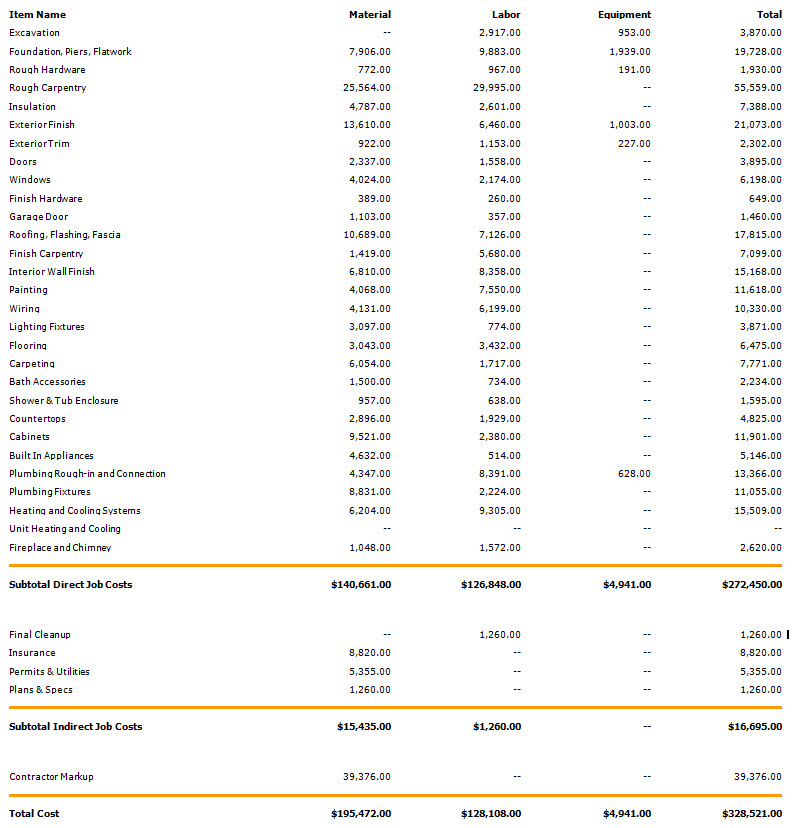
At $328,521 for a 2000-sq.-ft. house with a 400-sq.-ft. unfinished garage and a 1000-sq.-ft. unfinished basement, the result was $164 per sq. ft., which is about right in my area.
Fine Homebuilding Recommended Products
Fine Homebuilding receives a commission for items purchased through links on this site, including Amazon Associates and other affiliate advertising programs.

Affordable IR Camera

Handy Heat Gun

Reliable Crimp Connectors
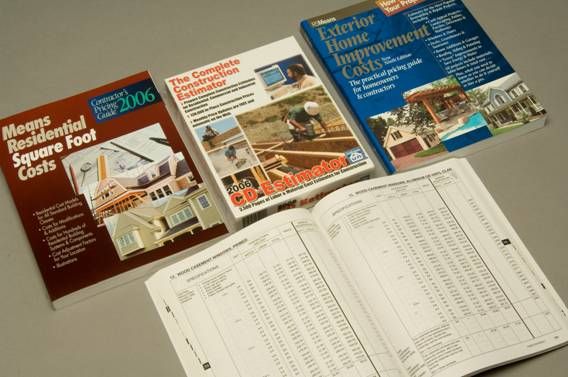
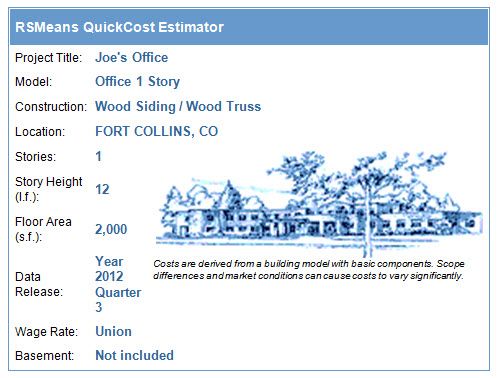
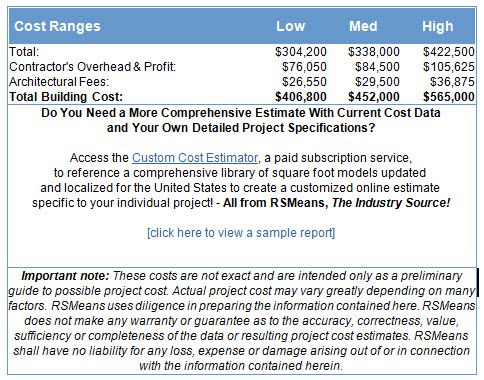
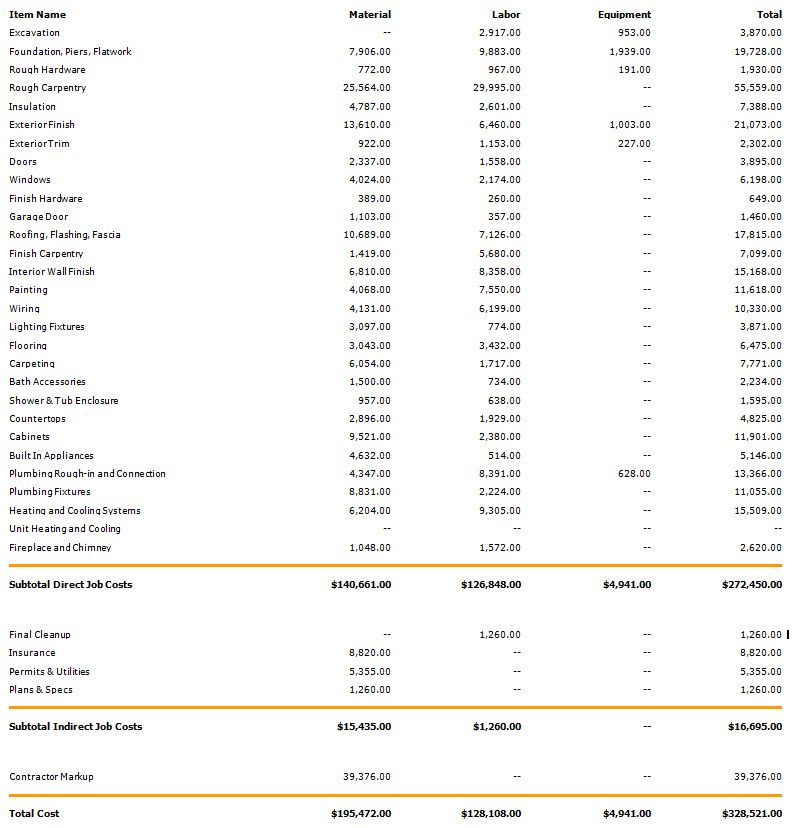


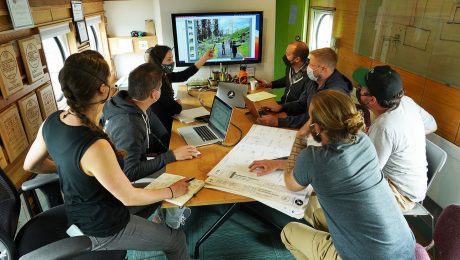
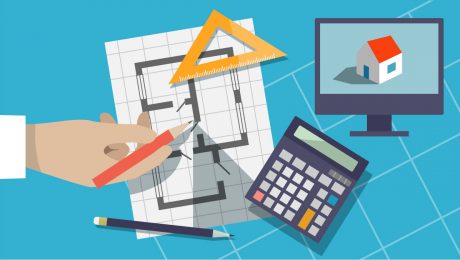
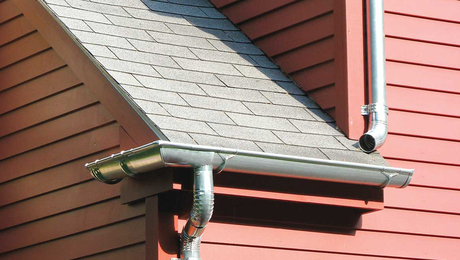


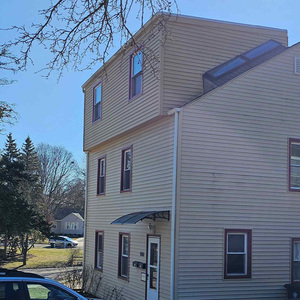
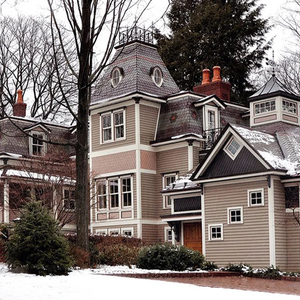


















View Comments
Nice article. I have been very pleased using the free estimate tool offered on Home Depot's Pro site. It gives baseline wages that are adjustable for every work area (electrical, framing, tile, etc.). It also allows you to give a specific markup on materials, labor, or for additional taxes. The thing I like most about it is that for a given task (let's say, laying 30 sq. ft. of tile in an entryway) the program will let you include material costs for the task with real-time pricing.
Each estimate is stored separately online for retrieval at any time, and you can print off a number of different tailored "reports" in the form of a proposal, contract, or cost analysis, all with varying levels of detail. I'm not plugging their company for pay or anything, but it's been a real asset to me as a fledgling contractor on my own. It's great to see companies give away some services for free in hopes of solidifying your business. And it usually works!
Great addition to the post, Old_Man_Patterson . Thank you. We actually covered the Home Depot estimating system a few months back; see post “A Talk With The Home Depot's Vice President of Pro Business.” https://www.finehomebuilding.com/item/27045/a-talk-with-the-home-depots-vice-president-of-pro-business
A simple excel based software for estimating construction projects can be found at http://www.basicestimator.com. This software is ideal for small to medium businesses who want fast and accurate estimates with a professional look.